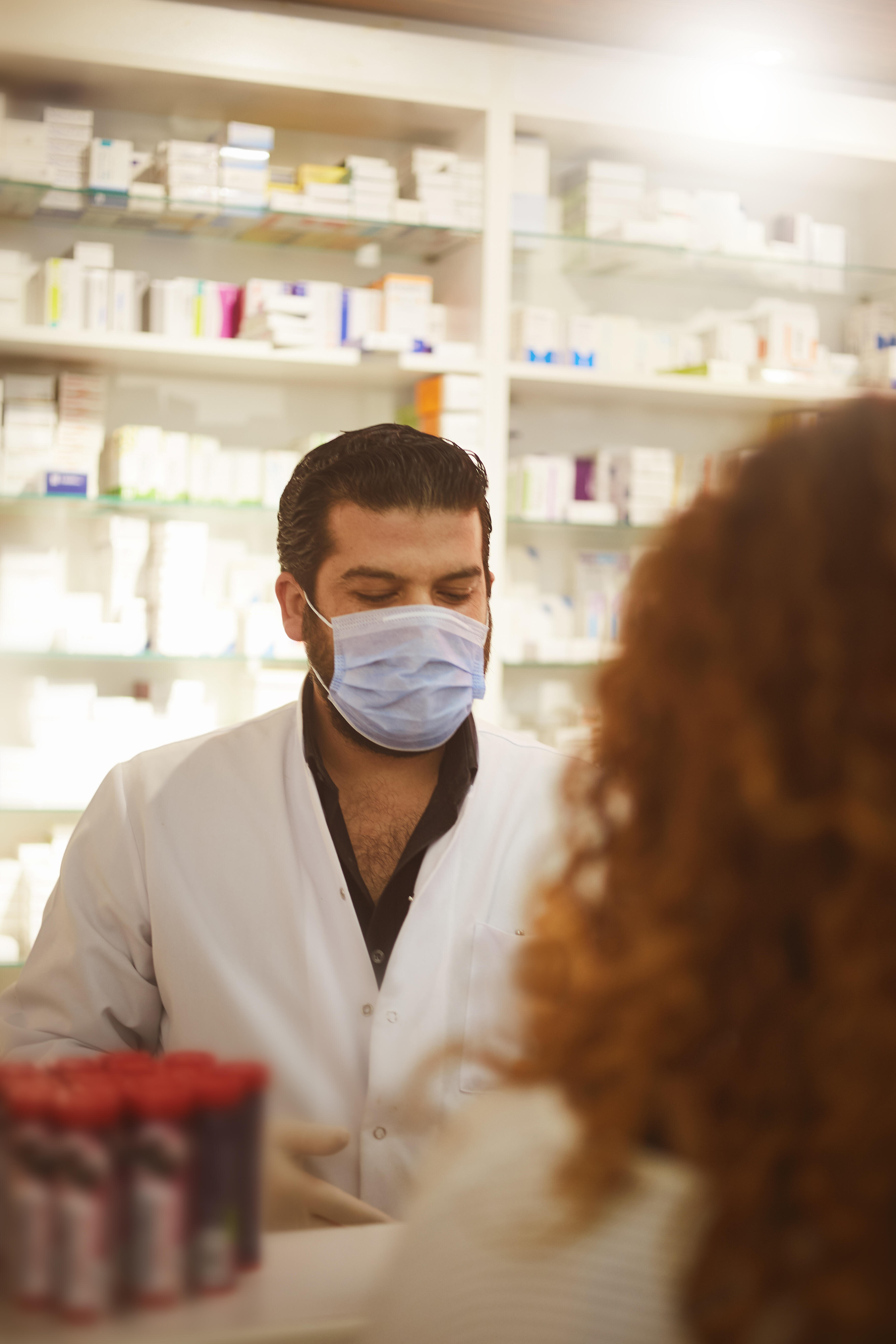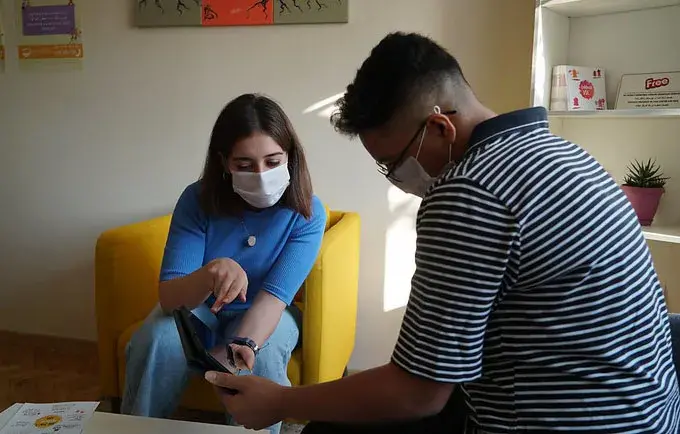ISTANBUL, Turkey — Natali Kopaliani thought that her trip to Istanbul would be a short one. She had travelled from her home in Georgia to neighbouring Turkey on an urgent family matter, and had brought her mother along to see a specialist doctor.
Then the new coronavirus disease (COVID-19) was declared a global pandemic. Turkey, like many other countries, started closing its borders. Kopaliani was stranded, along with her mother and her grandson.
“Our return flight was cancelled, so we were stuck here. I contacted our consulate but there was nothing they could do, and my medication was running out,” she says.
eKopaliani, who has been living with HIV since 1999, has been receiving antiretroviral therapy (ART) for the past 15 years. Thanks to this daily regimen of medications, which has reduced her viral load to undetectable levels, she says she feels healthy. But interruptions to ART can have dangerous consequences — especially amid a pandemic.
“Disruptions or termination of ART medications put all those dependent on continuous treatment in danger of developing complications that increase their risk of contracting COVID-19, with life-threatening consequences,” says Andrey Poshtaruk, Regional Advisor on HIV/AIDS for UNFPA’s Eastern Europe and Central Asia Regional Office.
Kopaliani tried to find a substitute for her medications, but struggled with the language barrier, her lack of familiarity with the Turkish health-care system — and the cost.
“The medication is free in Georgia, first supplied by the Global Fund, and now by the government, so seeing the price in Turkey was overwhelming: it was around 3,100 Turkish Liras [$450] for a 30-day supply,” she says.
Fortunately, Kopaliani had somewhere to turn for help. As one of the founders of a Georgian NGO called Women for Freedom, she is part of a regional network of organizations advocating for the rights of key populations at higher risk of HIV. Seeking support and advice, she called a colleague from the network who connected her with UNFPA’s Regional Office in Istanbul and its Turkey Country Office in Ankara.
Overcoming barriers to accessing treatment and services
“UNFPA has a partnership with the Positive Living Association, the first NGO in Turkey established by people living with HIV to support people living with HIV,” says Fatma Hacıoğlu Sarıdağ, Humanitarian Programme Manager for UNFPA Turkey. “They have contacts with different pharmacies and doctors that allow them to get ART drugs at reasonable costs for people in need.”
After learning about Kopaliani’s situation, UNFPA and the Positive Living Association identified the closest pharmacy, made sure they had the ART formula that she had been taking, and secured a large discount. “UNFPA’s Regional Office provided me with the contacts and ensured I received the medication. It seems to be working very well, and I am very grateful,” says Kopaliani.
UNFPA’s partnership with the Positive Living Association and another Turkish NGO, Red Umbrella Sexual and Reproductive Health Association, is part of a humanitarian project under the protection sector that is funded by the European Union Civil Protection and Humanitarian Aid.
This “Key Refugee Groups” project provides psychosocial and legal support and case-management services, including HIV testing and treatment access, to refugees living with HIV and members of other vulnerable groups such as LGBTI refugees. It mainly serves Syrian, Iranian and Afghan refugees, but with community-outreach workers in six provinces of Turkey as well as a nationwide hotline in four languages, it has helped people from a total of 97 different nationalities.
“We help people living with HIV in Turkey if they have any trouble accessing treatment or services here,” says Hacıoğlu Sarıdağ.
The need for that kind of assistance is becoming more widespread as the ongoing COVID-19 pandemic has left people like Kopaliani unexpectedly displaced for an open-ended period of time.
“After working with Natali, we realized we needed to do something bigger. There are a lot of people in her situation in our region, who have gotten stuck somewhere due to the lockdowns, without access to medications, or even counselling or information,” says Poshtaruk. To scale up the response, UNFPA has been working with the Eurasian Women’s Network on AIDS to launch a regional hotline in English and Russian.
Regional hotline for HIV-related health support
“Anyone who gets stuck in any country in our region and needs information will be able to reach out to the hotline, which will connect them with an NGO in that country that can help them find out where to go,” says Poshtaruk. He adds that the hotline will be accessible through popular messaging and social-media channels like WhatsApp, Viber, Facebook Messenger and Telegram. “In addition to HIV-related health support, the hotline will also serve as a link and referral to what services related to domestic and gender-based violence are available in each country.”
Currently, there is no strong evidence that people living with HIV who are regularly receiving ART and have an undetectable viral load are at increased risk of contracting COVID-19. “However, the pandemic affects health-care systems and their supply chains, leading to shortages and interruptions of life-saving ART medications,” says Poshtaruk. “Measures to contain the virus, such as lockdowns and movement restrictions, may also have unintended adverse effects on people living with HIV.”
The new regional hotline aims to help address some of those vulnerabilities by connecting people living with HIV with needed services wherever they happen to be. New guidelines from the WHO also recommend that countries allow people to take three-month supplies of essential medications like ART with them when they travel across borders to ensure they do not have to cope with an interruption.
“It’s scary because all of us who live with HIV have a suppressed immune system and there’s very little information so far on how the coronavirus is reacting to people like us,” says Kopaliani. She is staying inside her rented apartment in Istanbul while she waits for flights back to Georgia to resume. “What is most essential is that people who are in similar situations to me also receive contacts and information that they can use.”




